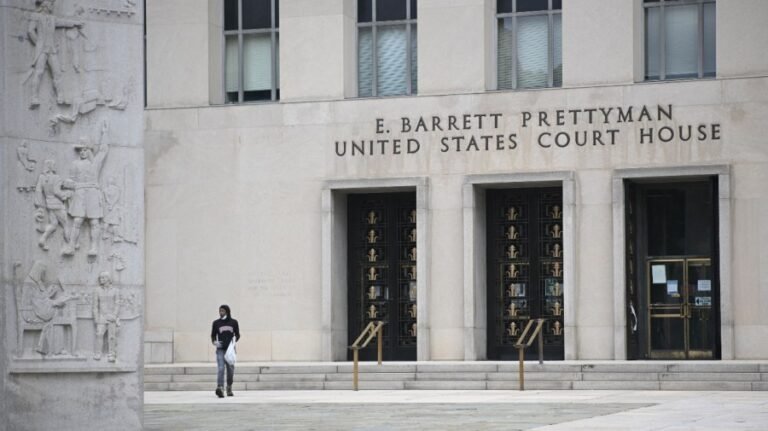
Six months into Trump’s second term, is there any issue where Democrats have traction?
“The only issues on which voters prefer congressional Democrats to Republicans,” a Wall Street Journal poll recently found, “are health care and vaccine policy.”
That fits with a late July Fox News poll that found 53 percent disapproval for Trump’s call for increased work requirements for Medicaid as part of the tax and spending bill passed by Republicans in Congress.
The bill eliminated more than $1 trillion from funding for Medicaid, creating an alarming threat to hospitals in small towns and rural areas. The Congressional Budget Office estimates that 12 million poor and working-class people are at risk of losing Medicaid coverage and insurance plans now available under the Affordable Care Act.
The cost of drugs for all seniors on Medicare is also expected to rise, due to Republican cuts to subsidies.
Americans are “seeing health care stripped away from them,” said North Carolina’s Roy Cooper (D), the popular former governor in a state with a lot of small towns and rural areas. Cooper plans to make high prices a prime message in his campaign, with a strong focus on health care, in the race for the Senate seat being vacated by Republican Sen. Thom Tillis.
Messages about declining access to health care now appear on billboard signs paid for by the Democratic National Committee. They stand near rural hospitals and nursing homes in six states that voted for Trump.
“UNDER TRUMP’S WATCH [this hospital] IS CUTTING MEDICAL SERVICES,” warn the DNC billboards. Forty-five percent of those hospitals already operate at a loss, according to the head of the National Rural Health Association.
In Congress, Democrats are coming to realize the power of messages on Trump’s cuts to health care protection. Senate Democratic Leader Sen. Chuck Schumer (N.Y.) wrote to Secretary of Health and Human Services Robert Kennedy Jr. last month to call for him to declare a “Public Health Emergency” to deal with the nation’s “largest measles outbreak in 33 years.”
“It is incredibly troubling that these tragic deaths due to measles … are being met with an inadequate public health response,” Schumer wrote. He called out Kennedy for having “laid off disease experts, cancelled National Institutes of Health research into vaccine hesitancy, fired scientist from the nation’s top immunization panel and stripped over $11 billion in federal public health grants — including $550 million from Texas during the peak of its outbreak.”
Kennedy ignored Schumer. He went in the other direction, attacking doctors as profiting from giving vaccines. Kennedy told podcaster Tucker Carlson that doctors have “perverse incentives” to give vaccines to children, with “50 percent of revenues to most pediatricians [coming] from vaccines.”
When reporters asked HHS for proof of that slanderous claim against the nation’s pediatricians, they had no factual response. Dr. David Higgins of the University of Colorado told The New York Times that Kennedy’s claim went beyond insulting. It was “dangerous” because it led parents to doubt the need for vaccines.
“If we were motivated by profit, we’d make more money treating the complications of preventable diseases than by preventing them in the first place,” said Dr. Higgins.
Kennedy, meanwhile, has fired over 10,000 HHS employees. Recently, he dismissed an entire federal vaccine advisory panel. This is the same man who continues to promote the long-debunked link between vaccines and autism.
Kennedy’s approach to health care as a matter of politics instead of science is a perfect fit in the Trump administration.
Earlier this year, the White House had falsely claimed that $68 million in American money was, in Trump’s words, “being sent to Gaza to buy condoms for Hamas,” where terrorists used the condoms “as a method of making bombs.”
The International Medical Corps reported that it received a $68 million grant that was used to keep two field hospitals open in war-torn Gaza. None of the money was used for condoms.
Similarly, a stunningly false Trump administration health care claim came from the Office of Management and Budget. Testifying before the Senate in June, Russell Vought, OMB’s director, said that more than $9 million being cut under the president’s tax and spending bill came out of a program being used to “advise Russian doctors on how to perform abortions and gender analysis.” In fact, he was referring to the President’s Emergency Plan for AIDS Relief program, started under President George W. Bush.
“The claim was false,” the Times reported, “and it nearly derailed bipartisan support for a program credited with saving 26 million lives.”
Democrats have struggled to find effective messaging to counter Trump’s populist appeal in the first six months of his second term.
Sixty-three percent of voters have an unfavorable view of the Democrats. That is the very bottom of the barrel in the last 35 years of polling on the party’s favorability, according to The Wall Street Journal. And it comes despite the Epstein scandal, despite Trump’s failed promises to stop wars and despite the Journal poll finding that most voters disapprove of Trump’s handling of inflation, economy and tariffs.
But the breakdown in national health care is starting to break through. I was a young reporter in Washington when attention to AIDS rocketed following the death of actor Rock Hudson. Since then, more than 700,000 Americans have died of AIDS — a disproportionate number of them Black. Government inaction exacerbated the suffering.
How can America repeat that failure?
Juan Williams is senior political analyst for Fox News Channel and a prize-winning civil rights historian. He is the author of the new book “New Prize for These Eyes: The Rise of America’s Second Civil Rights Movement.”


